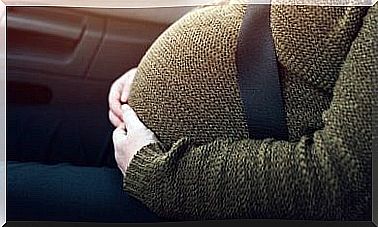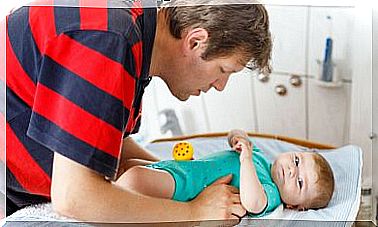How To Live The Period Of Breastfeeding Happily?

Among all the phases that make up motherhood, the breastfeeding period is one of the most special.
In it, unparalleled bonds are created between the mother and her baby. Furthermore, being a source of food is a responsibility and an honor for her.
Amidst so many emotions and tasks, it is necessary to leave space to live the period of breastfeeding happily.
Breastfeeding is so important that it actually starts when the baby is minutes old.
This has two functions: first, to provide the baby with an immediate connection to its mother and to test its sucking reflexes; secondly, it is also important that you absorb and digest the essential nutrients that colostrum contains.
Especially for first-time mothers, at this stage certain questions may arise.
So that you can live the breastfeeding period with happiness, the way you and your baby deserve, we have some important recommendations for you.
Advice to live the breastfeeding period with happiness
1. Don’t hesitate or feel ashamed
Breastfeeding is a completely natural and innate process.
Think of animals, which are mammals like us. They don’t have the ability to reason, but they are still perfectly capable of feeding their babies.
You also shouldn’t be intimidated by those who argue that this shouldn’t be done in public or that you should “hide” to breastfeed.
There is no greater lie than that. Always feel entitled to breastfeed your baby when he needs it.

2. Find the correct posture
During the breastfeeding period, it is natural that at first you will not feel comfortable with the classic position for breastfeeding your baby.
There are actually many options. The choice will be based solely on your comfort and that of your baby.
Poor posture can cause poor milk production and nipple irritation, due to the poor sucking force the baby will exert when unable to breastfeed comfortably.
However, it is also not a factor that you will have to worry about too much. With time, you will see which of the many
positions
it’s better for you and your baby.
3. What should I eat?
The baby receives the nutrients that the mother has in her body through breast milk. Evidently, they are obtained from food.
As a result, it is recommended to put aside unhealthy habits – that is, continue as in pregnancy – and follow a
diet
complete and varied.
According to
experts
, the essential nutrients during breastfeeding are calcium, iron, carbohydrates, proteins and healthy fats.
Also, don’t forget to stay hydrated constantly.
4. Is it time to stop?
Some mothers are bothered when breastfeeding goes on too long.
The concerns are due, on the one hand, to the fear of not producing enough milk to satisfy the baby’s needs; and on the other, harm the baby by not leaving in time.
As for the first fear, it is important that, after six months, you start offering other foods to vary the baby’s diet.
In relation to milk production, there is no reason for any problem: the body’s regulatory mechanism will take care of that.
As for the second fear, breastfeeding
prolonged
poses no risk.
It can extend to age five, six, and even seven if you both wish.
However, there is usually a lot of social pressure around this. And once again we highlight: those who decide are you and your child.
The criticisms, in fact, are due to society’s lack of information.

5. What can go wrong?
As with any new process we face, we are afraid that something might cause us problems.
Most mothers are able to successfully breastfeed, even first-time mothers.
Of course there could be problems. The most common are inflammation or pain in the nipples and a condition called
mastitis
.
However, none of them are serious. You will be able to overcome them perfectly by taking certain precautions and of course with the help of your trusted doctor.
Finally, remember that you are not going through this process alone. Your spouse, family, and friends are there to help and advise you.
Keeping your fears to yourself is the last thing you should do. So, externalizing them is the best way to be calmer.









